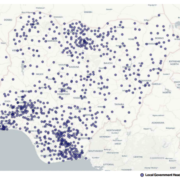The Executive Chairman of the Federal Inland Revenue Service (FIRS), Zacch Adedeji, has announced plans to introduce a comprehensive law next month aimed at overhauling Nigeria’s revenue administration process.
RELATED: Is Nigerian government taxing telecoms to death?
This tax reform, expected to take effect in September, will specifically address the burgeoning digital market in Nigeria, including the regulation of cryptocurrency.
Adedeji emphasized the importance of regulating cryptocurrency in a manner that supports economic development while safeguarding the nation’s financial stability. He highlighted the need for revenue harmonization, modernization of recording systems, and simplification of existing tax laws that have become outdated.
No law in Nigeria regulates cryptocurrency
“Today, we cannot ignore cryptocurrency. Currently, there is no law in Nigeria that regulates it, and as it stands, we must address this new financial landscape,” Adedeji stated during the 2024 stakeholders’ engagement with the Senate and House Committees on Finance.
The event was organized by the FIRS’ Intergovernmental Relations Department, under the theme “Repositioning The FIRS To Achieve Its Mandate.”
Adedeji pointed out that Nigeria’s current tax laws are antiquated, citing the continued use of the Stamp Duty Act of 1939, which predates the internet and modern digital infrastructure.
He noted that this outdated legislation is one reason President Bola Tinubu established the Tax and Fiscal Reform Committee. The Committee is tasked with revising and updating the country’s tax laws to align with contemporary realities.
“The laws we are using today were crafted in 1939, a time when there was no state or local government structure, no internet, and no digital economy. This is why the President set up the reform committee—to address these discrepancies and bring our tax system into the 21st century,” Adedeji explained.
He also reaffirmed FIRS’ commitment to achieving its revenue target of N19.4 trillion. He also acknowledged the positive impact of the recently passed windfall levy, which has bolstered the agency’s ability to meet its goals and redistribute wealth more effectively.





























